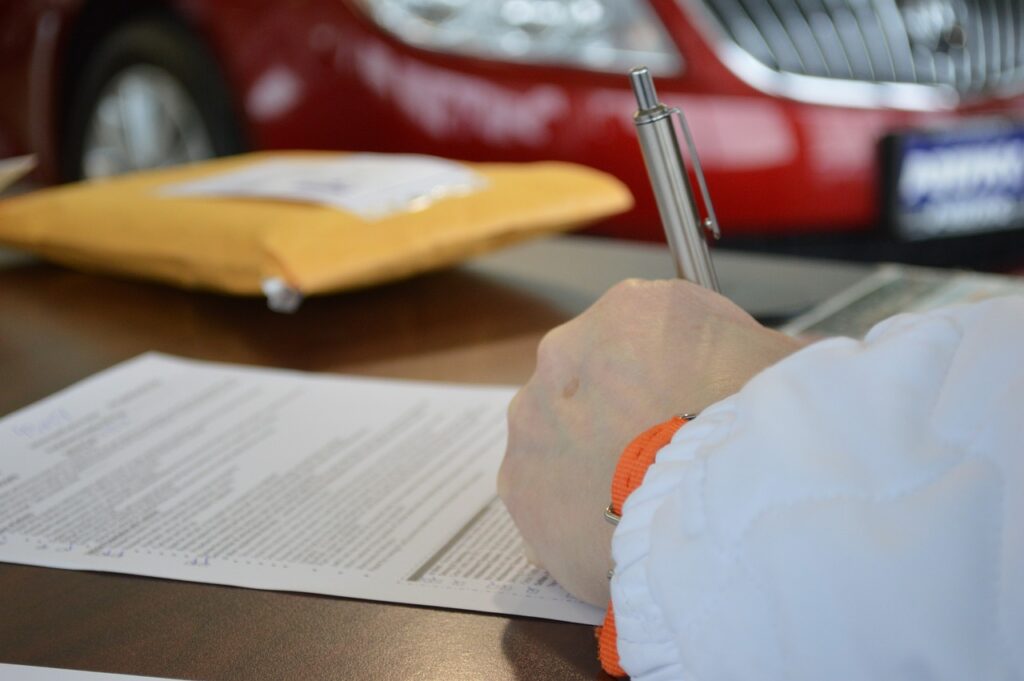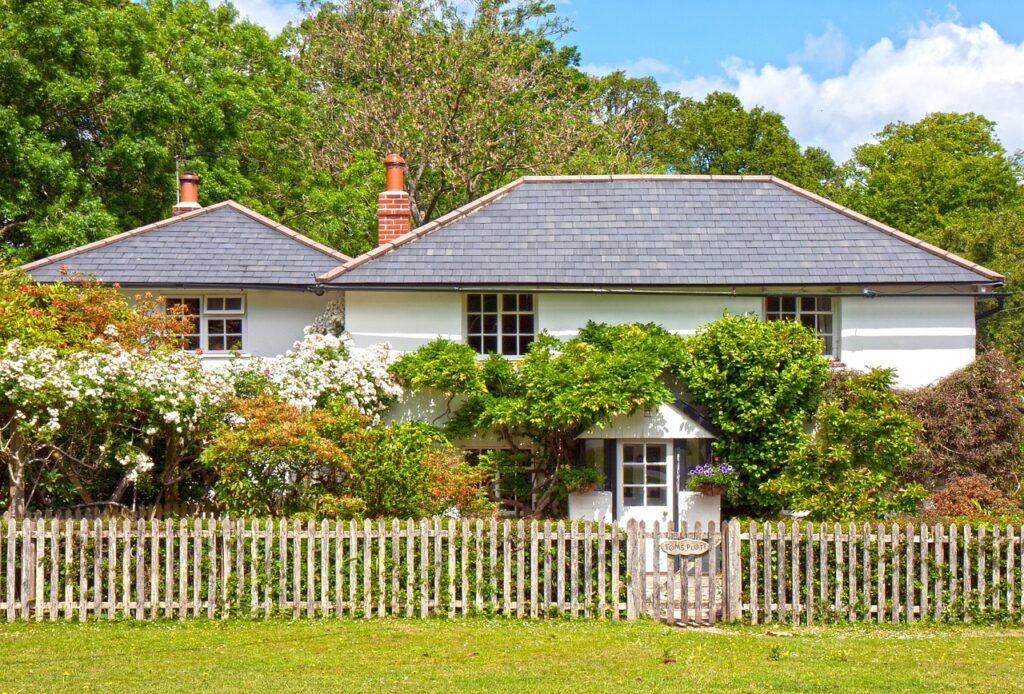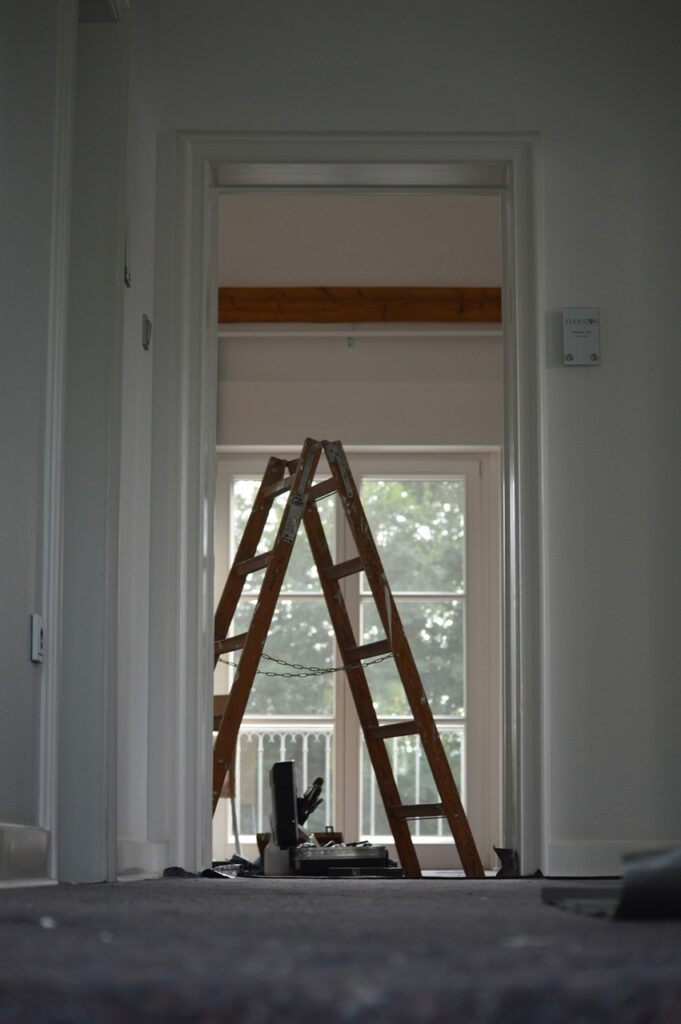Here at Provence Movers we often get involved with clients that are buying properties in France as second homes, renovation projects, or future primary residences. It very easy to fall in love with the “idea” of living in France, and a property. But don’t let “rose tinted spectacles” take you away from the due diligence required to make a prudent choice in purchasing a property that is right for you. Here we look at some key topics to consider when buying a property in France.
Understand The Legal Process
French property law is very different to the UK system, and actually in my opinion much better. For starters your Notaire (a French lawyer required in all property transactions), does a whole heap more than a typical UK solicitor. A notaire is a government-appointed lawyer whose role is essential for all real estate transactions: if property is bought, sold, donated or inherited, a notaire will draft the act, record it, levy the appropriate taxes (such as inheritance taxes), and deliver the deeds of property. A notaire is also under a legal obligation to provide you with complete information on the nature and implications of the agreement you are signing, and most notaires do this job extremely well, as their primary role is to ensure you have good title to the property. Your Notaire can provide private consultation to you with tailored advice about your circumstances.

Point number two is the Compromis de Vente , is a legally-binding, written contract that serves as the sale agreement. The notaire or property agent can draft it, and it’s common for non-French-speaking buyers to have it translated. If a notaire doesn’t draft it themselves, have one at least look it over – missing or incorrect information can cause problems for the buyer, seller or both parties. Both you and the seller of the property will sign the compromis de vente at a notaire’s office.
When you sign the Compromis de Vente you will pay a 10% deposit. Once the compromis de vente is signed, the seller is legally bound by its conditions. The purchaser, however, is only legally bound after a 10-day cooling-off period. During this time, the buyer can pull out of the sale, no explanation needed. They won’t be in breach of contract and the deposit is returned to them within three weeks.
But here’s the kicker, after signing the Compromis and the 10 days cooling off, if you decide to pull out of the purchase, you will loose your deposit.The upside to the Compromis de Vente is that its highly unlikely you’ll get gazumped, and to all intents and purposes the house is yours.
Do Your Sums First

Being “ready to buy” means you already have your funds in your bank account (if you’re a cash buyer) or a mortgage in principle agreement, that you have already opened your currency account and are ready to transfer the deposit, and that you’ve already sought legal advice prior to setting off on your viewing trip.
Before you’re even ready to start viewing, make sure that you’re “ready to buy” meaningyou already have your funds in your bank account (if you’re a cash buyer) or a mortgage in principle agreement, that you have already opened your currency account. There’s no need to hire a Notaire yet (there’s plenty around). But do carefully calculate your purchase budget. From your little nest egg, you’ll need to consider the additional costs of:
- Estate agency fees/commission of around 6-10% of the property price. Oftentimes these fees are included in the listed price, but it’s important to confirm that this is the case. Typically a listed price will be marked as FAI (Frais d’Agence Inclus) or HAI (Honoraires d’Agence Inclus) if the fees are included.
- Notaire Fees are typically between 6% and 8% depending on the property’s value and whether there is a mortgage involved, but they can occasionally be more, so be sure to check.
- There’s no VAT or additional taxes on the purchase, UNLESS you’re buying a new build and then you’ll have additional VAT @ 20% to pay. But as the new owner of the property you will have local “taxe fonciére and the taxe d’habitation” (similar to UK Council Tax), but these are in the process of being phased out.
After all there’s no point in wating everybodies time looking at a €500,000 property, when you can only afford €300,000
Viewing Your Property

This might sound daft, but we often hear stories of Brits buying properties in France “unseen” (this happened more than you’d think during COVID). This is likely to be one of the biggest investments in your life, so we advocate that you not only view the property, but also the surrounding areas, and make sure that a Notaire checks if any major developments are planned for the near area (a motorway extension, a sewage treatment plant for example). Property viewings in France must be booked in advance you cannot just walk into an “Agences Immobilières’ (Estate Agent) and start looking around properties. We suggest that you book a couple of weeks in your preferred area of France and get to know 3 or 4 agencies. Many properties are only listed with one agency so its important to spread the net.
In most towns/cities you’ll also be able to pick up free magazines that will list all agencies properties in the area, you’ll find these magazines in most supermarkets entrances and exits.
Once you’ve sourced some likely properties, plan your visits with an agency or two, three visits a day is normally enough, things often don’t run to time in France (specially in the countryside).
You’ll likely be asked be asked to sign a “Bon De Visite” by your estate agent before visiting a property. Thisn is just so that if you decide to buy the property you’ll do it through the first agent that showed it to you (i.e the one that has the signed Bon de Visite)
Rose-Tinted Spectacles

Easy enough to fall into this trap, especially if you’re doing you visits during a glorious French Summer. You’ve left the kids with the Grand-Parents and you’ve had a lovely couple of weeks viewing properties, eating well, drinking great wine, but its coming to the end of your trip, but you’ve still not found that perfect property. Then Jean-Philippe (your convivial estate – agent) calls with good news – the perfect home. You go visit and you LOVE IT! Even though there’s a little more to do in terms of renovations, and it’s a little further out of town than you’d hoped for, and it’s a little over the budget – but what the hell the house is just lovely, and you’re the near the end of the trip, and Jean-Philippe says that there’s another couple interested, and suggests that you call the Notaire ASAP.
The point is, don’t rush a decision like this, because you’re talking about one of the biggest investments that you’re going to make in your life
Renovating a Property in France
Just one last topic to cover is renovations on your property in France. Step one is contacting a builder (maçon) which is no easy feat to find somebody with availability in some areas of the country. But assuming that you can get hold of one, you’ll ask for a quote, known as a ‘devis’ in France.
Your builder will make a visit and you’ll need to carefully explain what work you’ll need doing, after which (generally sometime after) you’ll receive a devis. We advise that you get 2 or 3 quotations if you possible can, as you’ll likely get a range of prices and services being offered, in addition to a time frame for the work being completed. You should not need to pay for a devis – it’s a free service.
The devis will clearly state the estimated price for the job, including materials and working hours, plus any deposit to be paid prior to works commencing. It should also include the TVA (sales tax) that will be applied to the service.
The devis will also include the business or tradesperson’s SIRET number (business registration number). It’s a good idea to look up the SIRET number (which you can do here) and their relevant qualifications and insurance prior to agreeing to any work, especially if you are contracting an individual that you have never worked with before.
Remember that the price on the devis is an estimate and it will go up IF you ask the builder to additional work, and if he comes across some challenges during the renovation process. Our advice is that you constantly monitor the progress of the work being carried out, control the costs, and don’t be afraid to ask questions. In most cases it is unlikely that work will be completed as fast you expect if you are absent, and you’re also likely to pay a price well above the original devis.

Provence Movers is an international moving company specialising on relocation services to France. We provide high quality door to door removal services at really attractive rates. So if you’re planning on moving to France, give us a shout and we’ll provide you with all the information that you need